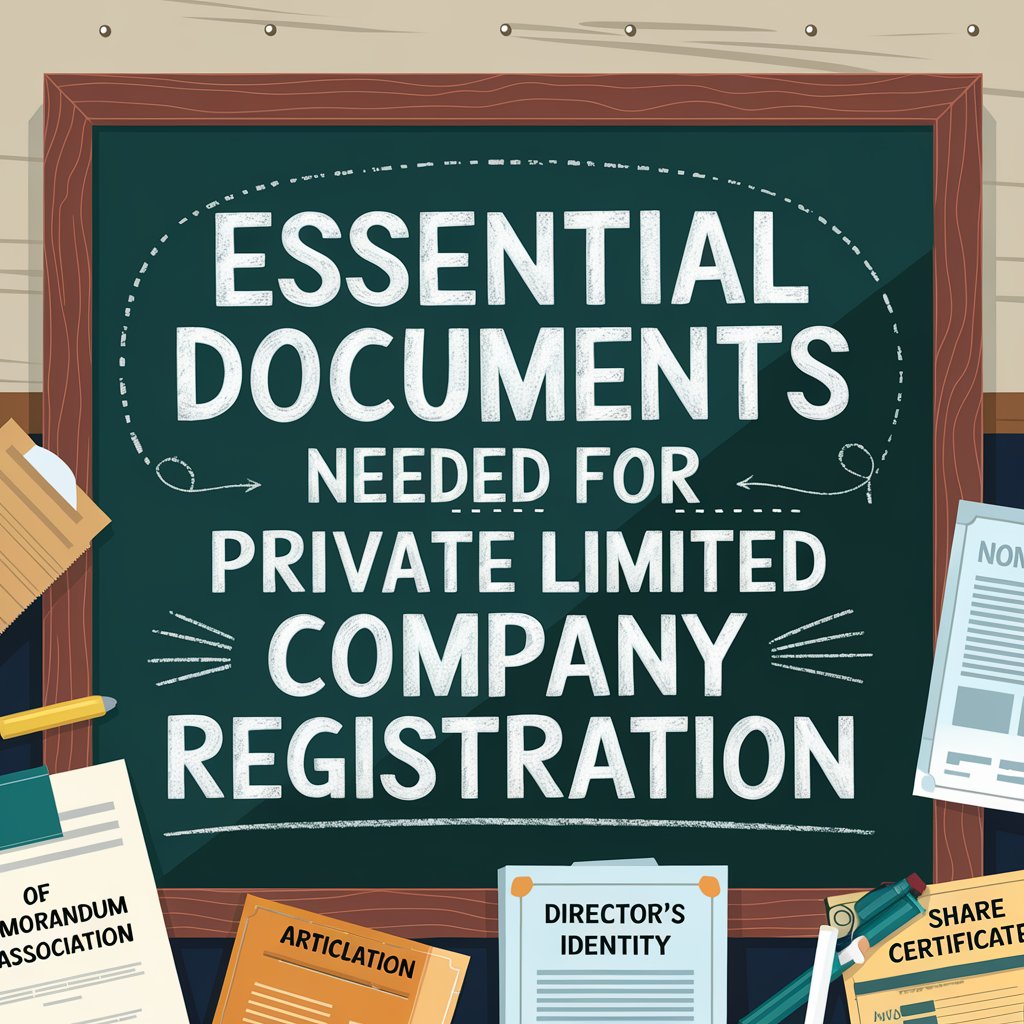Are you planning to start a business and consider the Private Limited model? What key paperwork is required for a smooth setup process? Understanding the essential documents needed to register a private limited firm in India is crucial for any entrepreneur.
Proper documentation not only speeds up the process but also helps avoid potential legal issues down the road. Pvt ltd company registration ensures your business is recognised as a separate legal entity, protecting your assets and providing other significant benefits. However, gathering the right paperwork is important to avoid delays or complications before starting the registration process.
Proof of Identity and Address for Directors and Shareholders
The first step in registering your business is ensuring all directors and shareholders provide valid identification and proof of address. This verifies the individuals’ identities and confirms their residential addresses. Each director and shareholder must submit the following:
- An Aadhaar card or PAN card is used to verify identity.
- A recent utility bill or bank statement is needed to confirm the current address.
- Passport-size photographs.
These documents confirm the identities of all involved parties. Additionally, the director must apply for a Director Identification Number (DIN), which is used for future correspondence with the Ministry of Corporate Affairs (MCA).
Proof of the Registered Office Address
Establishing the office location is an essential part of the registration process. The registered address must be provided along with documentation to validate ownership or lease of the property. Required documents include:
- Lease agreement or rental deed if the office space is rented.
- Electricity or water bill in the name of the business or property owner.
- No-objection certificate (NOC) from the property owner, allowing the business to use the address.
Memorandum of Association (MOA) and Articles of Association (AOA)
The Memorandum of Association (MOA) and Articles of Association (AOA) outline the company’s operations and structure. The MOA defines the company’s objectives, powers, and activities. It serves as a constitution for the business, setting boundaries on what the entity can and cannot do.
The AOA governs the internal management of the business, specifying its regulations and the relationship between shareholders. Both the MOA and AOA must be submitted during registration. They define the legal structure and ensure transparency in the company’s operations.
Digital Signature Certificate (DSC)
As most document submissions are now done online, every director needs a Digital Signature Certificate (DSC) to ensure secure online filings with the Ministry of Corporate Affairs (MCA).
A DSC is a digital key that certifies that online documents are secure and authentic. Certified authorities issue DSCs, and they are required to sign electronic paperwork. Obtaining a DSC ensures that all filings are legally binding and safe from tampering.
Director Identification Number (DIN)
The Director Identification Number (DIN) is another critical requirement for registering a private limited company. The MCA issues the DIN to every director, tracking their involvement in various businesses and ensuring accountability.
To apply for a DIN, a director must submit proof of identity, proof of address, and other required details through the MCA portal. Once issued, the DIN must be included in all official communications and filings with the MCA.
List of Subscribers and Shareholding Pattern
When forming a company, it’s necessary to provide a list of all initial subscribers and their respective shares. This document outlines the business’s ownership structure and ensures that all stakeholders are identified.
The shareholding pattern must also be submitted, specifying how shares are distributed among individuals or entities. This transparency helps prevent future disputes over ownership.
Gathering the right documents is essential for a seamless Pvt ltd company registration process. Ensuring identity verification, office proofs, and legal structures are in place simplifies the process, allowing entrepreneurs to focus on building their businesses without unnecessary delays.






